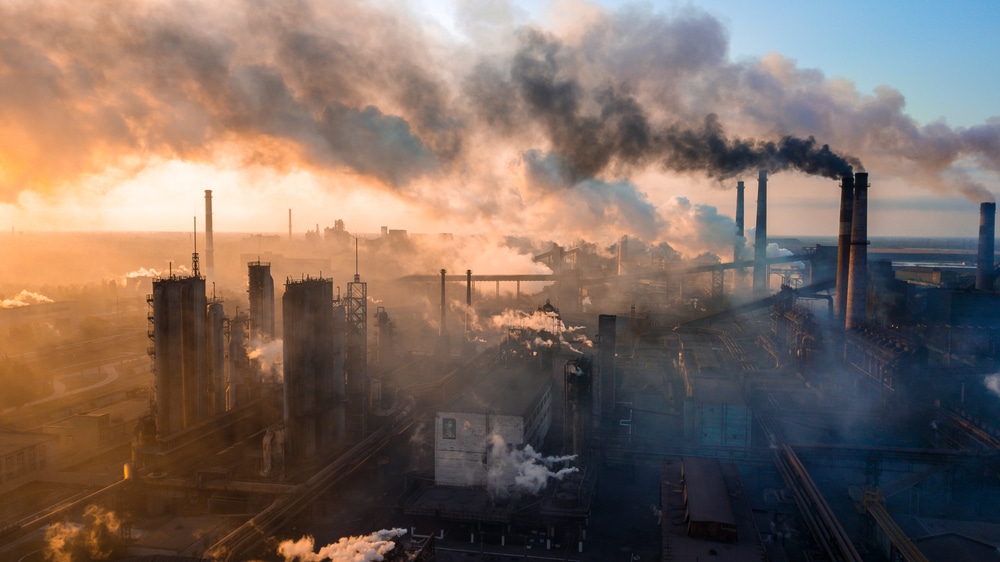Pollution, a growing concern for our planet, has been linked to various adverse health consequences, including respiratory and cardiovascular diseases.
A recent study conducted by several researchers has revealed a significant link between pollution and various types of cancer. These studies highlight the dire need for immediate measures to reduce pollution levels to protect our health.
The link between pollution and cancer
The study funded by Cancer Research UK and led by scientists at London’s Francis Crick Institute found that air pollution can cause changes to cells in the lungs, making them more likely to become cancerous.
The toxic particles in air pollution can trigger a range of cellular changes, including
damage to a cells’ DNA, alterations in how genes are expressed, and changes to the structure and function of cells.
Scientists have known for some time that exposure to tobacco smoke increases the risk of
developing lung cancer. However, until recently, it was not fully understood how air pollution could cause the same effect in people who have never smoked. This new study has shed light on this mystery, revealing that air pollution can cause the same cellular changes that occur when a person smokes tobacco.
To uncover this information, the scientists analysed data from a vast sample of over 400,000 individuals from the United Kingdom and various Asian countries. They specifically focused on comparing EGFR mutant lung cancer occurrence in areas with varying levels of PM2.5 pollution.
Their investigation revealed a clear correlation between higher levels of PM2.5 pollution and
increased rates of EGFR mutant lung cancer. In addition, they observed higher rates of other types of cancer among individuals residing in areas with elevated levels of PM2.5 pollution.
The implications of this study are significant. Cancer is already a major public health issue; this study suggests that air pollution is a serious contributing factor. If left unchecked, air pollution could have a devastating impact on global cancer rates, exacerbating an already challenging problem.
The study’s findings also suggest that current efforts to reduce air pollution are insufficient. While some progress has been made in recent years, particularly in developed countries, air pollution remains a significant problem in many parts of the world. If we are to address the problem of air pollution and its potential impact on cancer rates, we need to do more.
Sources of pollution
Pollution can be found in many forms and originates from various sources, including industrial activities, transportation, waste disposal, and agriculture. These activities release harmful substances into the environment, contaminating the air, water, and soil.
Air pollution is caused by the release of toxic gases and particles, such as nitrogen dioxide, sulphur dioxide, and particulate matter. Vehicle emissions, industrial activities, and the burning of fossil fuels are major contributors to air pollution. The effects of diesel emissions on the environment include the formation of ground-level ozone, which damages plants and trees.
Additionally, these emissions lead to acid rain, which negatively affects soil, lakes, and streams. This pollution ultimately enters the human food chain through water, produce, meat, and fish.
Water pollution occurs when harmful pollutants, including chemicals and microplastics, are released into water bodies. These pollutants enter oceans, rivers, and lakes through industrial processes, agricultural activities, and wastewater discharge.
Soil pollution occurs when industrial waste, agricultural chemicals, and other pollutants accumulate in the soil over time. Contaminated soil can lead to harmful health effects for people and animals.
Need for immediate action
The research emphasises the urgent need for governments and policymakers to take action to reduce pollution levels, given the severe health consequences associated with it. Environmental protection laws and regulations must be implemented to limit pollution levels and better monitoring and control of industrial emissions.
Additionally, it is essential to promote and support renewable energy sources for transportation, industry, and other sectors that contribute significantly to pollution.
The European Union has some of the most extensive pollution regulations in the world, and it has set ambitious targets to reduce emissions further. The Clean Air Package proposed by the EU in 2018 has set the goal of achieving zero air pollution-related deaths by 2050.
Moreover, individuals can take responsibility for this issue by adopting sustainable lifestyle choices such as using public transport, biking or walking instead of driving personal vehicles, using renewable energy sources to reduce carbon emissions, and holding manufacturers accountable by filing a diesel emissions claim at Emissions.co.uk
Bottom line
The study’s results, combined with other existing evidence, highlight the severity of the pollution problem globally and its negative impact on human health.
Immediate action is needed to reduce pollution levels, and governments must put in place effective policies, laws, and regulations to reduce the use of fossil fuels, mitigate industrial emissions, and promote clean energy sources. People must also play their part by making sustainable choices and adopting healthy lifestyles.





